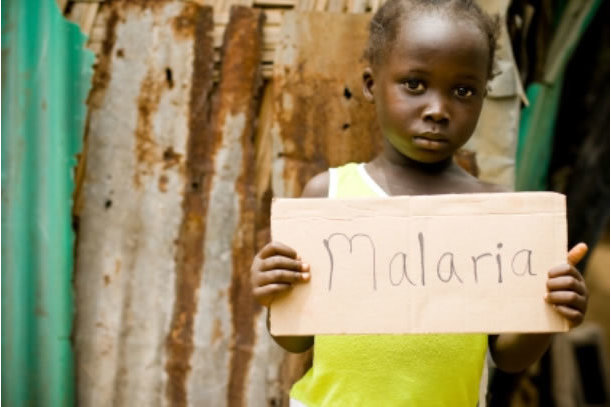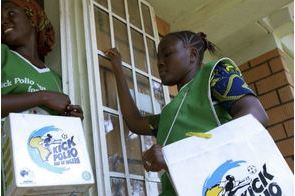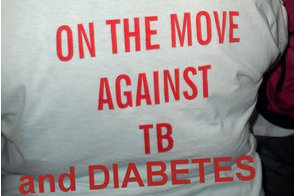Defeating malaria requires new approaches

Summary
Although the global death toll caused by malaria fell by almost 40% between 2000 and 2015, there has been slow progress in further beat down of the numbers.
Defeating the malaria scourge that still claims hundreds of thousands of human lives annually has been a matter of utmost interest for global health organisations for years. While significant progress has been recorded in the global fight against the fatal disease, regarded as the sixth leading cause of deaths in low-income countries, its prevalent high infection rate continues to drive the search for lasting solutions.
The world’s desperate attempt to develop new solutions to make malaria infection less fatal to human lives is understandable, using available data as pointers.
In 2020, an estimated 241 million malaria cases and 627,000 malaria deaths were recorded worldwide, representing a significant upshoot from the 2019 statistics, as revealed by the World Health Organisation’s (WHO) 2021 World malaria report. Although the global death toll caused by malaria fell by almost 40% between 2000 and 2015, there has been slow progress in further beat down of the numbers.
Unfortunately, Africa currently accounts for approximately 94% of the global malaria cases. Only four African countries – Nigeria (31.9%), the Democratic Republic of the Congo (13.2%), the United Republic of Tanzania (4.1%) and Mozambique (3.8%) – were responsible for over half of all malaria deaths worldwide in 2020.
On the continent, and particularly in high transmission communities, malaria transmission cases are straining healthcare systems. There are approximately between 30% and 50% of hospital admissions and up to 50% of hospital outpatient visitations. The disease is also estimated to be costing Africa approximately $12 billion annually, consequently hindering socio-economic growth.
Poor access to health services, low quality of healthcare, and the increased resistance of malaria parasites to affordable first-line drugs have long been identified as some of the critical factors that contribute to this high mortality rate from malaria in Africa.
In proffering solutions to these challenges, malaria prevention tools and strategies, such as effective vector control, preventive antimalarial drugs, and vaccines have so far been adopted. Although these strategies have recorded moderate successes in stemming the burden of the disease, calls for more investments in effective control methods have been advocated in recent times.
Seeking to further deepen the fight against the disease, global health organisations, like the WHO, have developed a technical framework for all malaria-endemic countries to achieve effective control and elimination by 2030, including the reduction of case incidence and mortality rates by 90%. This framework includes eliminating malaria in at least 35 countries by 2030 and preventing a resurgence in all malaria-free countries.
Likewise, the prevention and elimination of malaria is also a critical focus under the United Nations SDG 3, a key aspect of its 17-point agenda for achieving Sustainable Development in all participating countries by 2030. Overall, SDG 3 aims to ensure healthy lives and well-being for people of all ages, with protection against diseases like malaria and access to standard healthcare among its objectives.
To achieve these outlined strategies, in line with the 2030 malaria eradication agenda, African governments have swiftly moved to endorse a ‘Zero Malaria Starts with Me’ campaign, while urging civic groups, private organisations, and individuals to play a collective role in curbing the malaria infection rate through smart actions and investments.
Fortunately, responses to this rallying call to neutralise or eradicate malaria threats have been encouraging in some quarters.
A response worthy of mention is the Access Bank partnership with the Corporate Alliance on Malaria in Africa (CAMA) for the End Malaria Project. This initiative, according to the collaborators, is aimed at galvanising private sector resources and capabilities for sustained support towards reducing the incidence and prevalence of malaria in the most endemic region in Africa by 2023. The initiative effectively kicked off in Nigeria with outreach to five and seven communities in Lagos and Ebonyi, respectively. In these areas, insecticide-treated nets, malaria rapid diagnostic tests kits and several doses of sulfadoxine-pyrimethamine (IPTp-SP) were donated to primary health facilities.
Elsewhere, in 2020, the bank partnered with the Private Sector Health Alliance of Nigeria to launch the Malaria-to-Zero Initiative, for the purpose of averting at least one million malaria cases and deaths.
A critical aspect to consider in the continued fight against malaria is the Covid-19 disease and its variants, which have added a new dynamic to the situation. For instance, according to the WHO’s 2021 World Malaria Report, the pandemic made the incidents of malaria significantly worse. Moderate disruptions in the provision of malaria prevention, diagnosis and treatment during the Covid-19 pandemic, led to an increase in malaria cases and deaths in 2020 compared to the previous year.
This new reality has been reflected in Access Bank’s health strategies. The bank has broadened its outreach and investment beyond the eradication of malaria. It is also supporting efforts to end other deadly diseases like Covid-19 and HIV. This was evident in its role in the formation of the Coalition Against COVID-19 (CACOVID) at the height of the Covid-19 pandemic. Access Bank spurred other institutions in making donations to provide treatment, testing kits, training, isolation centres and various medical equipment to all states in Nigeria.
For Africa and other malaria-endemic countries to achieve effective control and elimination by 2030, as the WHO and United Nations have mandated, there would be a need for the development and investment in more innovative, cost-effective, sustainable genetic technologies and strategic outreach to supplement existing measures and tools.
Indubitably, all hands are required to be on deck to develop lasting solutions to the outbreak of malaria and other deadly diseases that could potentially derail Africa’s human capital development efforts, as well as its socio-economic and structural transformation roadmaps. Such investments and collaborative efforts are the much-needed pathways to making the third agenda of the SDGs a possibility.
Omobolanle Victor-Laniyan is Head of Sustainability at Access Bank.
Related
-
Rotary pledges $96.5 million in grants to eradicate polio
Nigeria has been apportioned $16.1 million of the grants, while Afghanistan will receive $22.9 million.
-
Africa is now in serious danger of sleepwalking into a cancer crisis
Across Africa there remains a desperate need for cancer clinics offering women affordable screening and treatment.
-
The deadly axis of TB and diabetes
Type-2 diabetes not only renders the body incapable of processing or responding to insulin; it also weakens the immune ...







